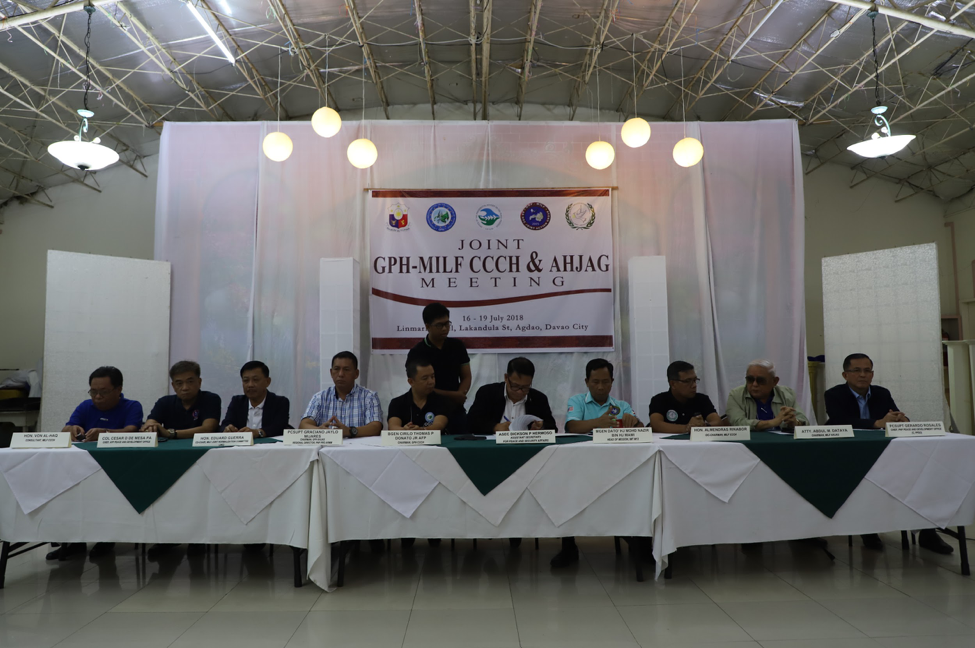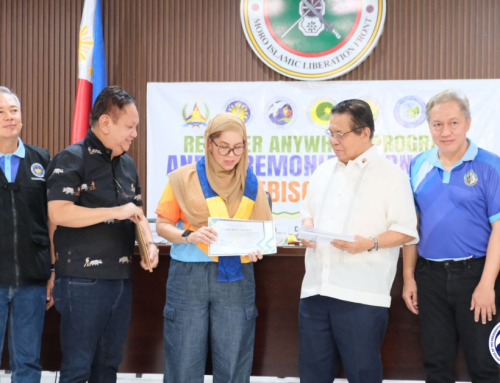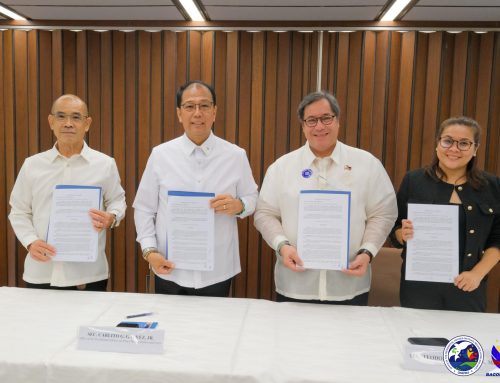DAVAO CITY, July 18, 2018 — The existing peace mechanisms have been instrumental in sustaining the gains of the peace process between the Government of the Philippines (GPH) and Moro Islamic Liberation Front (MILF).
This was the consensus of participants of the joint meeting of the GPH-MILF Coordinating Committee on the Cessation of Hostilities (CCCH) and Ad Hoc Joint Action Group (AHJAG) held at the Linmarr Apartelle here on Wednesday.
Brigadier General Cirilo Thomas Donato Jr., chair of the government’s Ceasefire Committee, underscored the importance of the gathering, saying it was “very timely” in light of recent developments in the peace and security front.
“What is important for us is to keep on talking and keep on engaging each other,” Donato told the more than 70 government and MILF members of the CCCH and AHJAG coming from conflict-affected areas throughout Mindanao.
“All our efforts will be put to waste if no one is working on the ground,” he said, acknowledging the outstanding work of the CCCH and the AHJAG in the field.
Donato explained that through the CCCH and AHJAG, which are among the main peace or ceasefire mechanisms, potential situations of conflict between government troops and MILF forces are immediately resolved.
In fact, he said, over the years a number of possible armed encounters have been averted due to the timely intervention of the CCCH and AHJAG.
“We therefore need to strengthen our cooperation and collaboration,” he said, adding this strong partnership between the government and MILF will be crucial particularly in the passage of the Bangsamoro Basic Law (BBL).
The landmark measure, which aims to finally address the perceived historical injustices committed against the Bangsamoro people, is expected to be signed into law by President Rodrigo Duterte on July 23, the day he delivers his State of the Nation Address (SONA).
In the same meeting, Professor Aboud Syed Lingga, a member of the MILF Peace Implementing Panel, said the ongoing GPH-MILF peace process does not only aim to address situations of conflict but, more importantly, to leave a lasting legacy of peace to the Filipino people.
“This (peace process) is our great contribution. We have maintained the peace process because of its primacy,” he said.
“You shoot at each other during battle. But when you try to resolve conflict, you sit in the negotiation table,” he added, recalling how the government and MILF were able to find a peaceful settlement to the armed conflict that led to the passage of the final GPH-MILF peace agreement.
Lingga said there were differences in how the government and MILF conducted their operations, but due to the presence of various peace mechanisms, contentious issues were immediately resolved and the outbreak of armed confrontations were prevented.
“Instead of shouting, you talk to each other. You don’t put fuel to the fire,” he said.
Lingga commended members of the CCCH and AHJAG for their crucial role in maintaining the gains of the GPH-MILF peace process.
“The peace process has provided a model, an example, of how two (different) fighting units can work together. You have demonstrated how you can all work together, to adjust to situations,” he said.
For his part, Office of the Presidential Adviser on the Peace Process (OPAPP) Assistant Secretary Dickson Hermoso emphasized the importance of the peace mechanisms and how they have helped in creating a groundswell of support for the BBL.
“Had it not been for these peace mechanisms, this (BBL) would not have been possible,” he said. “We have gone far. We are seeing the light at the end of the tunnel.” ###











